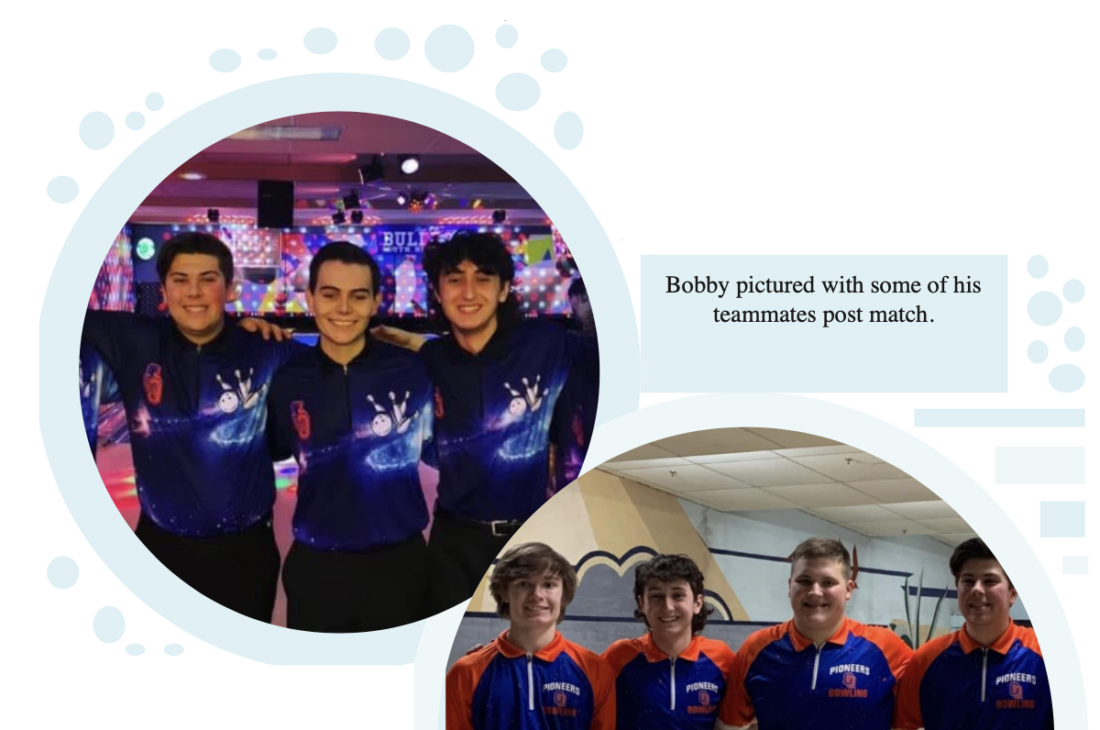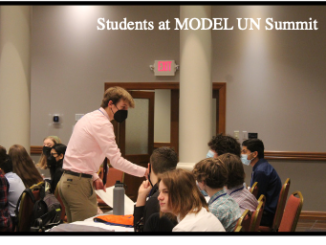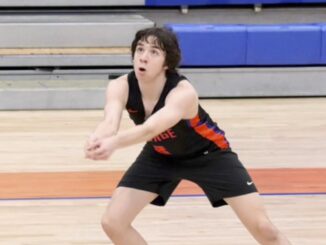
photo credit: Natalia Favila Inacua
DECA. Distributive Education Clubs of America is an international non-profit organization that partners with schools and universities to teach students real world business.
The school’s DECA program started in 2009 and is a co-curricular course offered at the school through the Junior and Senior Marketing classes. The students alongside Business Teacher and DECA Adviser Teresa Gellenbeck run the school’s store Fort Orange and sell school merchandise at school sporting events.
There’s no required prerequisite for taking Junior and Senior Marketing, however it is highly recommended to have taken prior business classes.
This is Gellenbeck’s second year teaching and running the school’s DECA program. Alongside junior and senior marketing, Gellenbeck also teaches entrepreneurship as a single semester elective.
“I love the real-world business connections! Students gain valuable business management skills by running our school-based enterprises, leadership and collaboration skills through DECA officer positions and confidence, time management and public speaking skills through competitions,” Gellenbeck said.
The school’s DECA Co-Presidents for the school year are Vyom Bhatt and Sierra Toot, who were elected by Gellenbeck at the end of last year.
“My proudest accomplishment this year is exceeding overall sales compared to last year,” Bhatt said.
DECA has gained double the revenue this school year than in the 2020-2021 school year.
“I’m most proud that under my leadership we’ve been able to increase our chapter membership by 35 percent, and we have 25 members competing at DECA States, the most in school history,” Toot said.
Students who qualified for states include: Brooks Hamilton ‘25, Andrew Lowery ‘24, Colin McNamara ‘25, Adam Welch ‘25, Claire Jenkins ‘25, Audrey Reynolds ‘25, Sierra Toot ‘24, Kaden McClary ‘24, Carver Gibson ‘25, Liam Hoffman ‘25, Klaus Diem ‘24, and Brady Farren ‘24.
“DECA offers unparalleled opportunities to network within the business world. DECA also provides practical experience and helps develop essential and invaluable skills that students use for the rest of their lives,” Toot said.
DECA doesn’t have a prerequisite course, but students must be either juniors or seniors to apply to become a member during the next school year.
“The people who would enjoy DECA the most and would be able to get the most out of it are the type of people who are hardworking, determined, and want to have fun while learning,” Bhatt said.
Competitions are a large part of DECA, and they take place on the district, states, and national levels.
“My favorite part of DECA is competing in competitions at Easton for districts, Columbus Downtown for state, and California, this year, for nationals,” Bhatt said.
DECA competitions are usually all-day events that host multiple schools’ DECA programs at a neutral site.
“You dress up and go to where the competition is held. When it is your turn you present in front of a judge either your role play or your written event. Then judges can ask you questions,” junior DECA student Ellis Appiah said.
Not every student competing in a DECA competition is participating in the same type of contest.
“There are three main types of DECA Competitions: Role-Plays, Written & Presentation Events, and Online Challenges. DECA Role-Plays involve students simulating real-world business scenarios, Written & Presentation Events require participants to research and present comprehensive business plans, and Online Challenges assess students’ knowledge in various business-related subjects,” Bhatt said.
Alongside different types of events at competition, there are also different career clusters for events.
“Competitive events that are grouped into career clusters: Marketing, Hospitality and Tourism, Finance and Entrepreneurship. Within these clusters, students can choose to compete in individual events or team events,” Toot said.
Nationals is the highest level of competition for DECA students, and a student must first pass districts, then pass states in order to make it to nationals.
“At DECA nationals, the ultimate goal is to win DECA Glass, which is awarded to the top three national finishers in each event. At nationals, we strive to learn as much as possible to take it back and improve our chapter,” Toot said.
Even though Bhatt will be continuing his education at OSU, he still has high expectations for the students and DECA program next year.
“We also hope that juniors will be taking over leadership positions next year and will be able to get experience so that they can help manage the program and hopefully take even more people to Nationals in Orlando and win more glass,” Bhatt said.


